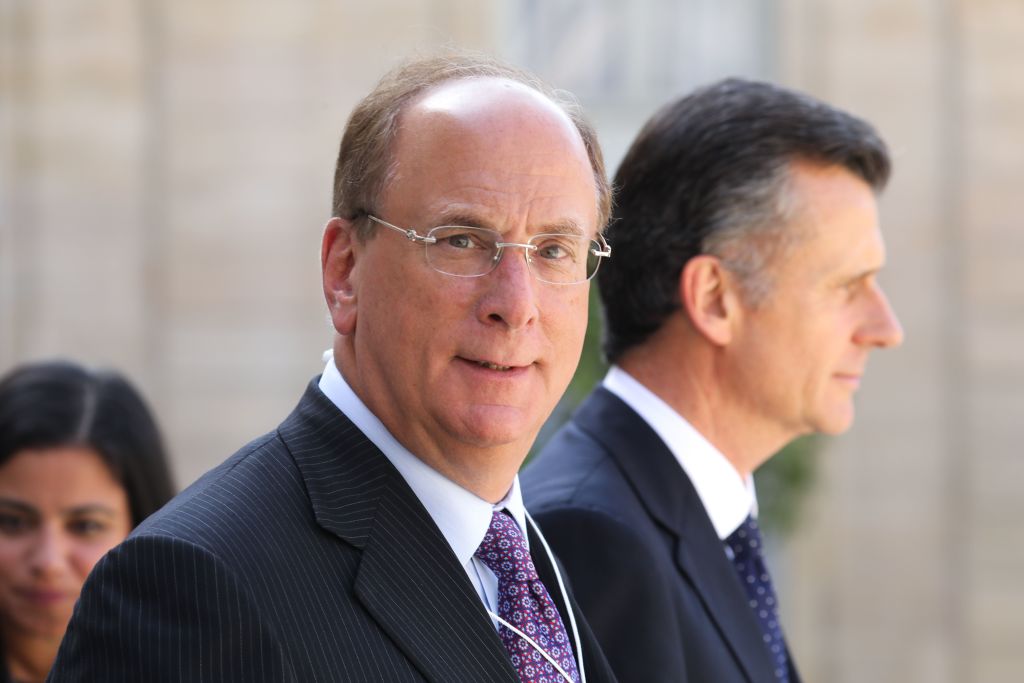ESG investing: The only way is ethics

“Climate change has become a defining factor in companies’ long-term prospects,” wrote Larry Fink, chief executive of Blackrock, in his annual letter to global company bosses last month. “I believe we are on the edge of a fundamental reshaping of finance.”
It was a big moment. Sustainability has been a growing economic issue for more than a decade, but even late last year some of the world’s biggest asset managers were accused of doing little more than paying lip service to environmental, social and governance (ESG) factors in their investments.
When Fink speaks, however, the world tends to take notice. The asset manager holds the keys to about £5.4 trillion of investors’ cash. By the US Central Intelligence Service’s estimate, that is equivalent to about eight per cent of the money in circulation on the planet.
“Money talks, and Blackrock controls a lot of money,” says Emma Wall, head of investment analysis at Hargreaves Lansdown. “ESG investing is officially mainstream.”
But as the popularity of ethical investment products has grown, so have concerns about a lack of clarity around the topic. Here is a primer on the investment trend which is taking finance by storm.
What’s in a name?
Fink’s letter marks the latest chapter in a global shift which has seen more and more people redirect their money towards ethically conscious investments. Traditionally, this has ranged from excluding oil and gas companies from a portfolio, to including technology stocks or renewable energy firms — or both.
However, in recent years, this has evolved to give ESG investing a broader meaning. Maggie Sullivan, a spokesperson for asset manager Schroders, says the “S and the G” — social and governance — are also “fundamental to sustainable investing”.
“Social factors could be considerations such as demographics, data security, or nutrition and obesity or how well a company looks after its employees, for instance,” she says. “Governance factors relate to the internal policies and processes companies have designed to ensure management acts in the best interests of its shareholders.”
In practice, this means that as well as screening out carbon-heavy stocks like oil majors, investors are throwing their support behind companies that are actively changing their behaviour to have a positive impact on society.
A sound investment?
In the past, exclusionary funds have got something of a bad rap among asset managers for failing to yield high returns and meet wider benchmarks. But this is becoming less of a concern, as pro-climate sentiment eats away the oil, gas and coal industry’s performance on the stock market.
According to a recent report from the Institute for Energy Economics and Financial Analysis — a think tank partly funded by the Rockefeller family — 2019 was the “Terrible, Horrible, No Good, Very Bad Year for Oil and Gas”.
“The energy sector (not including renewable energy) finished dead last in the S&P 500, the second year in a row it has held that distinction,” it noted, while the fossil-fuel industry “continued to collapse in value relative to the broader stock market”.
And as the criteria governing ESG investing have got wider, the downsides have faded, says Wall. “The new breed of ESG-mindful funds, which invest in the best-in-class companies across all sectors and where boards are making a concerted effort to improve the company’s ESG credentials and be more sustainable, do not have the same challenges”.
“This is about boards future-proofing a company’s revenues, profits and dividends — sustaining shareholders’ investment as well as the planet.”

The big picture
It is easy to think of climate risk as something which applies primarily to the energy sector. But the truth is that environmental factors pose a much broader economic challenge — something analysts have woken up to.
Last month’s World Economic Forum in Davos, where every year economists list the top five global economic risks in terms of likelihood, was a prime example. For the first time, all five were climate-related.
Craig Mackenzie, head of strategic asset allocation at Aberdeen Standard Investments, warns of the growing challenge for investors trying to anticipate the growing list of financial and ecological hazards.
“Global warming poses both long-term physical risks and nearer-term risks as the energy sector shifts from fossil fuels to low-carbon alternatives.
“These risks will affect the performance of certain asset classes in various ways,” he continues.
“For example, real estate and infrastructure are at particular risk in areas prone to flooding, storms and wildfires. Physical climate risks also have implications for the insurance sector. Meanwhile, power utilities, oil and gas, transport and some industrial activities are at risk from the move away from fossil fuels.
“If investors are serious about ESG integration, they need to consider how ESG factors affect long-term investment returns.”
Great — where do I start?
From going vegan to opting out of having kids, the effect that the likes of Greta Thunberg and David Attenborough have had on millennial lives has been profound.
But moving money around appears to be the trickiest step, says Wall. “We surveyed our clients last year, and found the majority of those surveyed had changed their lifestyle habits after watching Blue Planet. But when asked if they knew they could use their money to align with their ethics, most were not aware.”
And even investors who know how to take control of their savings and put their money to good use can be misled if they do not keep their wits about them, as some brands turn out to be “wolves in sheep’s clothing,” according to Lisa Ashford, chief executive of investment platform Ethex.
“You will see the terms impact, green, sustainable, ethical attached to a fund, but look under the bonnet and you will see funds with companies with questionable records on fossil fuels, human rights, arms dealing or executive pay.
“This is proving very frustrating to customers and business. It undermines many of the initiatives to reduce carbon emissions.”
Subsequently, as interest in the field has grown, advisers have looked for new ways to offer guidance to would-be ethical investors on how best to deploy their cash.
Ethex itself is a purpose-built platform through which people can invest directly in companies whose mission they can get behind. Interactive Investor, meanwhile, is trying to help people navigate the sector with its Ethical investing long list, ACE 30 ethical rated list and Ethical Growth portfolio.
Services like these will surely become even more sought-after in the coming years, as forest fires in Australia, melting ice caps and mass protests make climate change impossible to ignore.
It is “the ultimate long-term problem,” Fink wrote last month. “There is no denying the direction we are heading. Every government, company, and shareholder must confront climate change.”